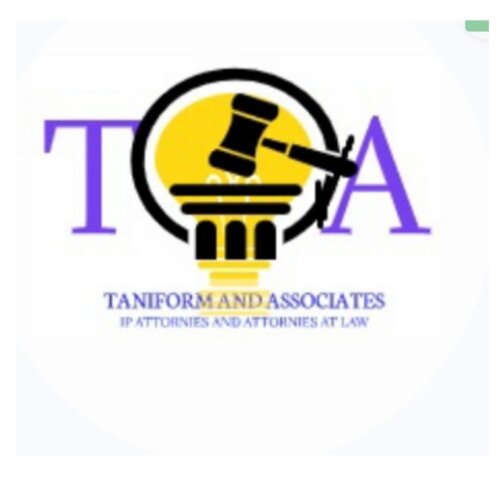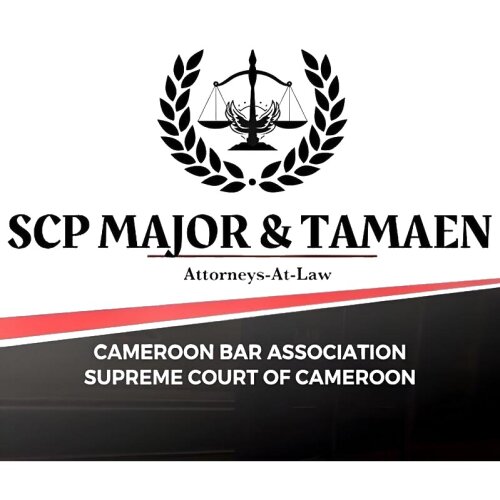Best Patent Lawyers in Yaoundé
Share your needs with us, get contacted by law firms.
Free. Takes 2 min.
List of the best lawyers in Yaoundé, Cameroon
Legal guides written by CHI & Partners Law Firm:
- Ship Registration in Cameroon

Taniform and Associates IP Attorneys and Attorneys at Law
15 minutes Free ConsultationAbout Patent Law in Yaoundé, Cameroon
In Yaoundé, Cameroon, like in other parts of the world, patent law is primarily concerned with the protection of original inventions. It grants inventors a set of exclusive rights over their invention for a limited time period, usually 20 years. During this period, the patent holder has the monopoly to use, manufacture, and sell the patented invention. This legal field seeks to foster innovation and also contributes to technology transfer and industrial growth. Patent law in Cameroon falls under the purview of the African Intellectual Property Organization (AIPO), which Cameroon is a member of.
Why You May Need a Lawyer
Understanding and navigating patent law can be complex, particularly for those unfamiliar with the legal landscape. You may require the assistance of a lawyer when applying for a patent, to ensure that the application is drafted correctly and meets all AIPO criteria. If you suspect someone of infringing on your patent rights, an attorney can help you understand your options and enforce your rights. Lawyers are also instrumental in the licensing or selling of patent rights.
Local Laws Overview
In Cameroon, patent rights are primarily governed by the Bangui Agreement of AIPO. It mandates that inventions must be new, involve an inventive step, and have industrial applicability. Also, patent rights are only protected when the patent is registered with the National Institute of Industrial Property (NIIP). Please note that some subject matters, like scientific theories or methods of treatment by therapy or surgery, are not patentable under the Bangui Agreement.
Frequently Asked Questions
What is the validity of a patent in Cameroon?
Under the current laws, a patent is normally valid for 20 years. However, this duration may be subject to conditions of maintenance and renewal stipulated by the NIIP.
What can be done if a patent is infringed in Cameroon?
If you believe your patent has been infringed upon, you can file a lawsuit with a competent court seeking an injunction to stop the infringing activity. Legal representation is strongly advised in such cases.
Is international patent recognition available in Cameroon?
Yes, Cameroon is a contracting state of the Patent Cooperation Treaty (PCT). This means patents granted in other contracting states of the PCT can be recognised in Cameroon, subject to certain conditions.
What are patentable inventions according to Cameroon’s law?
Pursuant to AIPO, a patentable invention must be new, involve an inventive step, and have industrial applicability. It could be a product, a process, or an improvement of either.
What is the process of patent registration in Cameroon?
The process of patent registration in Cameroon involves several steps, such as submission of an application to the NIIP, examination of the application by the NIIP, possible opposition procedures, and eventually, the grant of the patent if all conditions are met.
Additional Resources
For more information on patent laws in Cameroon, you may refer to the website of the African Intellectual Property Organization (AIPO) and National Institute of Industrial Property (NIIP). These institutions offer valuable resources and updates on the latest legal positions regarding patent law in Cameroon.
Next Steps
If you need legal assistance in patent law, we recommend contacting a lawyer specializing in this field. They can provide you with tailored advice and guide you through your particular situation. It would be beneficial for you to prepare beforehand a detailed description of your invention, its utility, and how it is distinct from prior art, for a constructive consultation with your lawyer.
Lawzana helps you find the best lawyers and law firms in Yaoundé through a curated and pre-screened list of qualified legal professionals. Our platform offers rankings and detailed profiles of attorneys and law firms, allowing you to compare based on practice areas, including Patent, experience, and client feedback.
Each profile includes a description of the firm's areas of practice, client reviews, team members and partners, year of establishment, spoken languages, office locations, contact information, social media presence, and any published articles or resources. Most firms on our platform speak English and are experienced in both local and international legal matters.
Get a quote from top-rated law firms in Yaoundé, Cameroon — quickly, securely, and without unnecessary hassle.
Disclaimer:
The information provided on this page is for general informational purposes only and does not constitute legal advice. While we strive to ensure the accuracy and relevance of the content, legal information may change over time, and interpretations of the law can vary. You should always consult with a qualified legal professional for advice specific to your situation.
We disclaim all liability for actions taken or not taken based on the content of this page. If you believe any information is incorrect or outdated, please contact us, and we will review and update it where appropriate.










